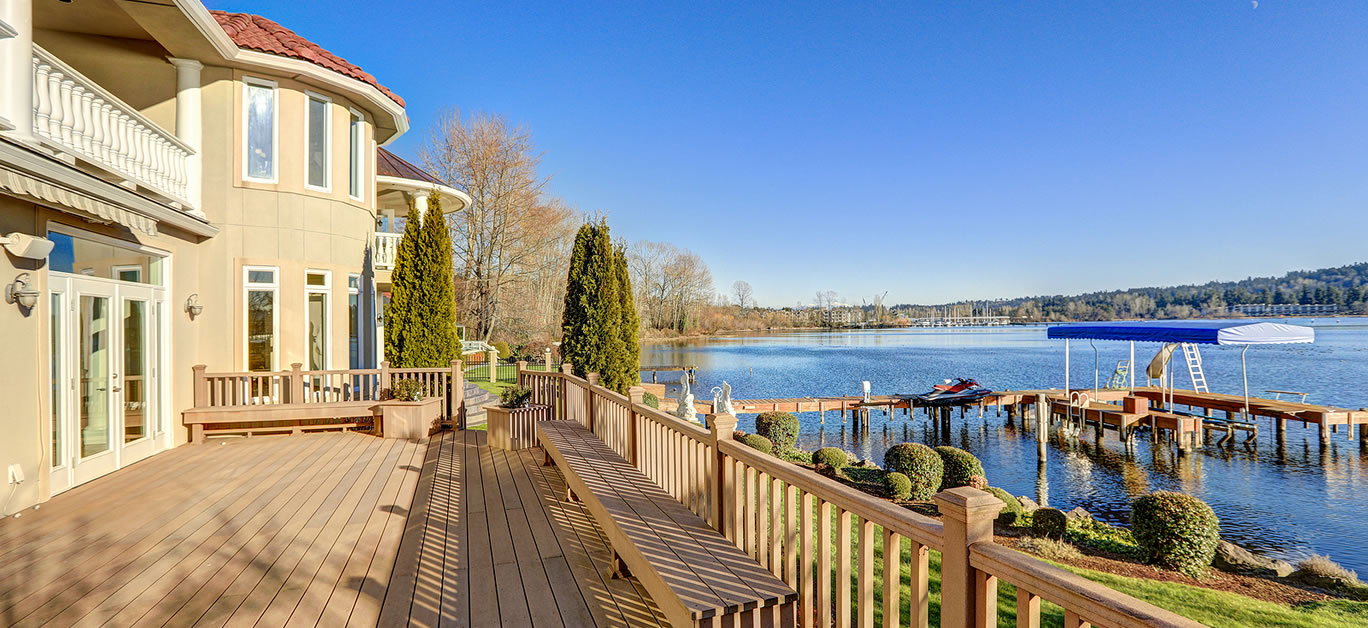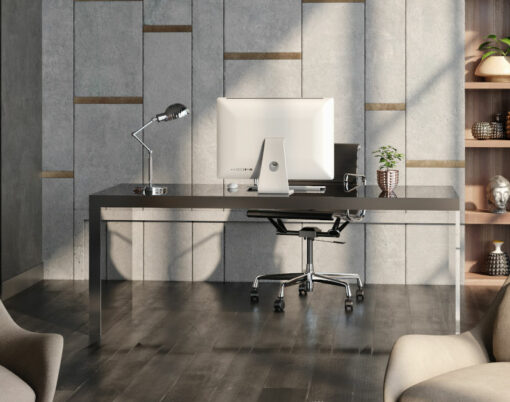With spring in full swing and summer now just around the corner, many luxury homeowners are turning their attention to their gardens, giving them a much needed spruce-up and some all-round polish to get them ready for al fresco dining and outdoor social gatherings as the weather finally warms up.
When it comes to garden design, the importance of boundaries is often overlooked, but they’re an important consideration that should be given your time and attention. Not only are they essential for providing privacy and creating security, but they can also make or break the overall aesthetic of your outdoor space – and today, there are a host of different options to choose from, which means you have plenty of choice when it comes to finding the right fit for your garden.
Garden fences come in a variety of styles, materials, and designs, but there are some great alternatives to the traditional fencing style, too. So before you head off to your local building merchants for supplies, let’s take a look at some of the best of them to get you inspired and well on the way to achieving that show-stopping boundary appeal your garden deserves.
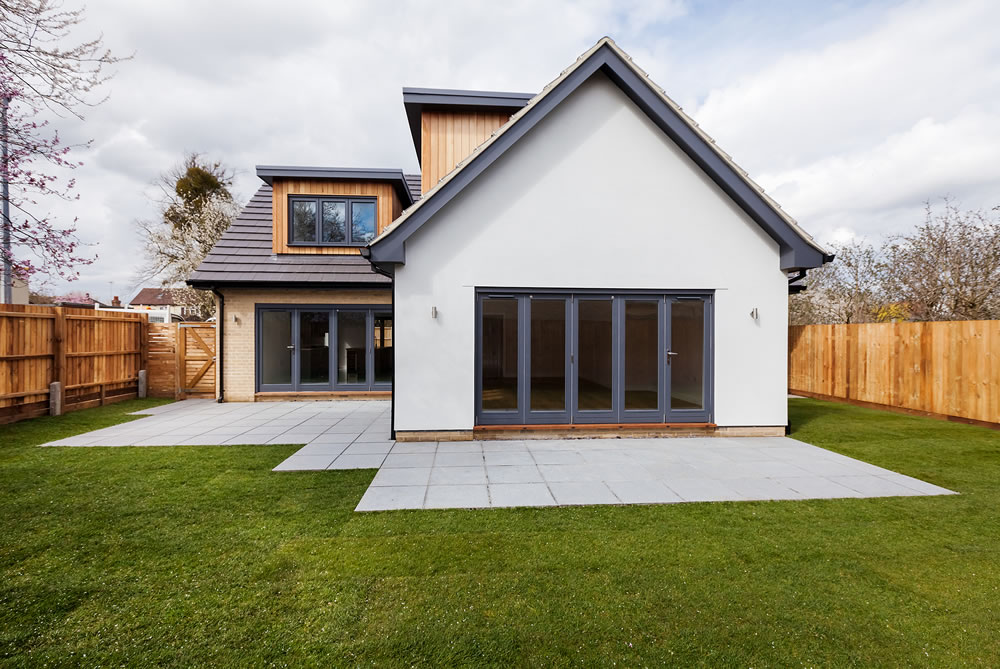
Traditional picket fencing
Starting with perhaps the most obvious option, traditional picket fencing is still a great design choice and is a classic and timeless choice that, if well looked after, will last you for many years to come. Made from vertical wooden slats, this type of fence can be painted or glossed according to your tastes and the look and feel you’re keen to create. This will work well if you’re going for a traditional, country-house vibe.
Horizontal slatted fencing
If you’re looking for something a little more modern, then horizontal slatted fencing is a contemporary choice that is becoming increasingly popular. Although most commonly made from wooden slats, they also come in metal varieties, and the distance between the slats can be tailored to suit your needs – so if you’re keen for maximum privacy, then placing them close together will ensure your garden is fully enclosed from prying eyes.
A sleek look featuring clean lines, if you’ve gone for a minimalistic aesthetic inside your home, then this is a great way to continue the theme outdoors.
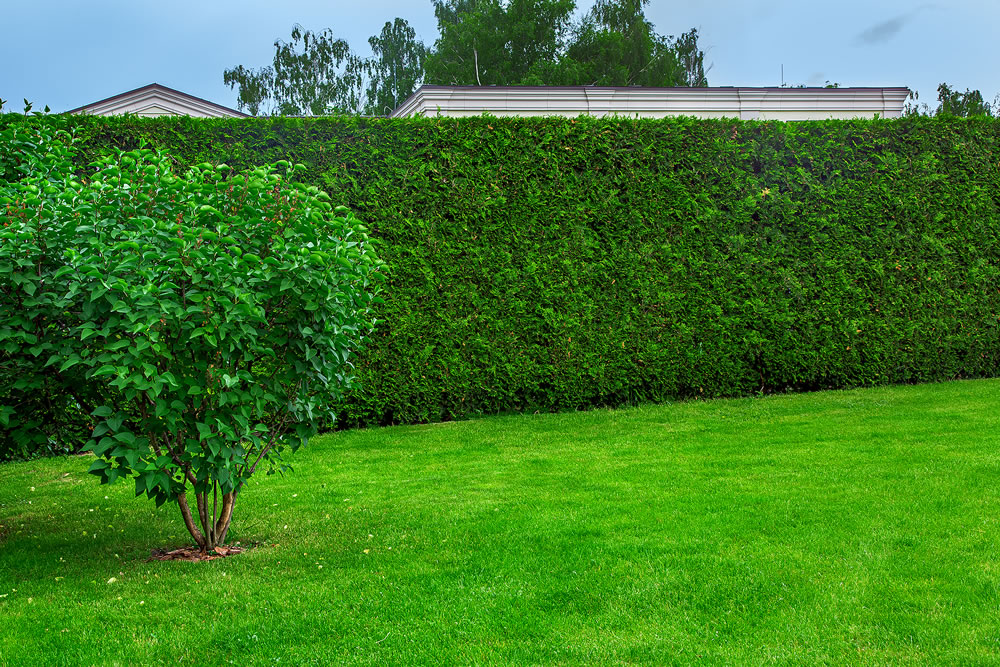
Living walls
If you’re looking for a more sustainable choice, then living walls are an excellent way to support the natural environment and will also help your home to blend more seamlessly into the surrounding natural landscape. Based around a vertical support structure, they are adorned with lush green foliage, and are created using a hydroponic system or simply plants in soil.
They come with a host of benefits, including helping to purify the air around your property as well as providing habitats for birds and insects to support biodiversity. Not only that, but they look visually stunning, too, making them a beautiful and eco-friendly alternative to the traditional garden fence.
Bamboo screening
Another sustainable choice that sits somewhere in the middle of traditional fencing and living walls when it comes to eco-credentials, bamboo screening can inject a tropical vibe into your garden space – even if the weather in the UK is far from it.
Bamboo is a fast-growing plant when compared with many that are used for fencing materials, making it a more renewable option, and bamboo screen fencing exudes a luxurious and exotic look and feel that draws on the Asian-inspired design aesthetic that is so popular in luxury homes and hotels at the moment. It’s also resistant to rot and decay, and is a material choice that requires minimal upkeep – so if you’re looking for a durable fencing option that looks stylish, too, then this is it.
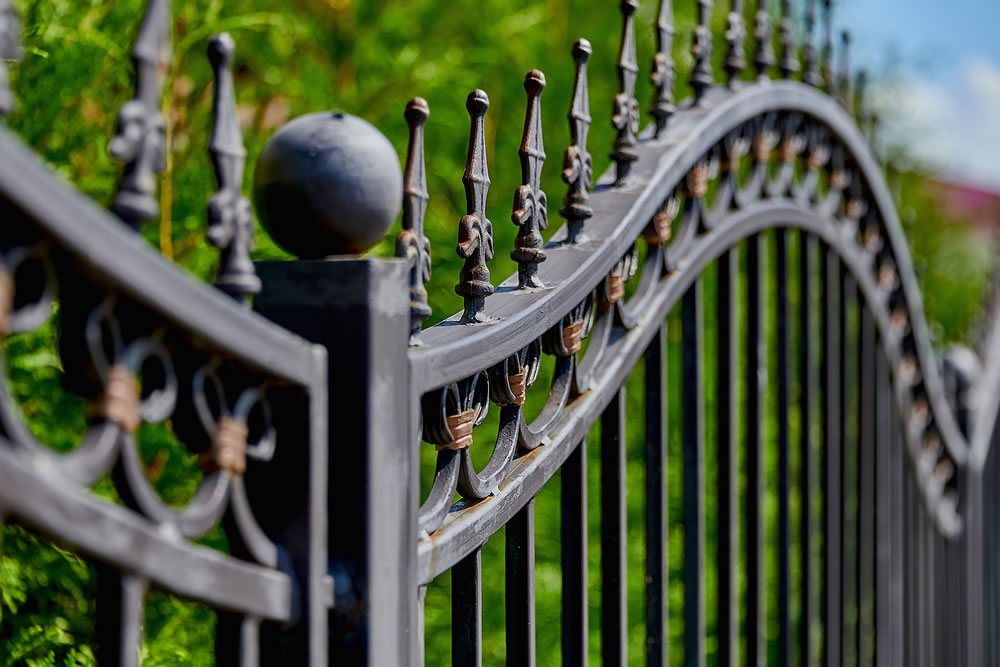
Wrought iron fencing
Going back to more timeless choices, wrought iron fencing is another option for your garden boundaries that offers plenty of advantages.
Available in a host of intricate designs ranging from traditional to more modern, wrought iron fences are durable and built to withstand even the harshest of elements. Elegant and grand, they also add a sense of luxury to your outdoor space – but one drawback is the fact that they do provide slightly more limited privacy.
They’re perhaps best suited to those who live in homes with large gardens or set within sprawling grounds where there are no neighbours in close proximity – many high-end homeowners have them at the front of their properties too, with access only possible via a coded gated entrance for extra security. Their height alone is a deterrent to intruders, and makes scaling them virtually impossible.












